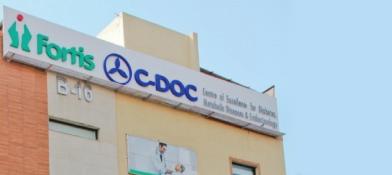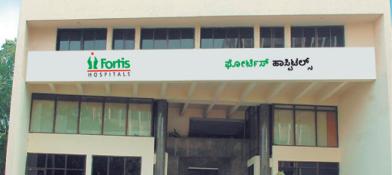Peritoneal dialysis
The thin membrane of the abdomen that covers the internal organs is called the peritoneum. When this peritoneum gets inflamed due to infected body fluid, peritonitis occurs. This article explains more about peritonitis along with its symptoms, causes, treatments and complications.
Peritonitis
Peritonitis is a disease that causes inflammation in the peritoneum membrane, a thin membrane covering organs inside the abdomen. Inflammation of the peritoneum occurs when the tissues are exposed to irritating and infected body fluids. This leads to swelling of the abdomen, causing pain. As the peritoneum connects many organs in the abdomen, infections can affect and spread to the bloodstream and become systemic throughout the body. Peritonitis can be mild to severe and localised in one place or diffuse throughout the peritoneum.
Causes of peritonitis
The common cause of peritonitis is bacterial infections, especially secondary infections that spread from one organ to another. It happens when there is a hole in the stomach where the infections enter from the gastrointestinal tract to the peritoneal cavity. Some of the other chemical and infectious causes of peritonitis are as follows:
- Bile leaks from the gallbladder due to severe infections can cause perforation in tissues, leading to peritonitis.
- Pancreatic enzymes leak from the pancreas due to infections, causing perforation of tissue and resulting in peritonitis.
- Gastric acid leaks from the stomach lead to peritonitis.
- Rupturing of a cyst or tumour in the abdomen causes peritonitis.
- Spontaneous bacterial peritonitis accumulates germs in the peritoneum, causing inflammation.
Primary infections can happen in the peritoneal cavity through medical instruments. Dialysis and tube feeding are the most common ways of causing infections. Peritoneal dialysis fills and drains the peritoneal cavity with fluid through a tube, which passes directly through the peritoneum and to the stomach and intestine. This introduces infections to the abdominal cavity and finally leads to inflammation.
Peptic ulcer disease, infectious pancreatitis, ruptured ectopic pregnancy, intestinal ulcer, inflammatory bowel disease, dehydration and other conditions also lead to the inflammation of the peritoneum.
Symptoms of peritonitis
The common symptoms of peritonitis include:
- Mild to severe abdominal pain
- Swollen abdomen
- Dehydration
- Paralytic ileus
- Fever
- Nausea and vomiting
- Rapid heart rate
- Shortness of breath
- Mild cognitive impairment
- Fatigue
- Swollen legs and feet
- Thrombocytopenia
Diagnosis
A gastroenterologist initially treats conditions after physical examinations and follow-up tests like blood, stool, and imaging tests. In complex conditions, they perform imaging tests to take pictures of the organs from outside. Some of them are as follows:
- Endoscopy: It is a technique where gastroenterologists look inside your body with the help of an endoscope ( a small camera fixed at the end of a long, thin, flexible tube ), which is inserted through your mouth. It helps them get a more detailed view and see how things are functioning and what might cause the disease. Endoscopy includes a few procedures, which are as follows:
- Upper endoscopy: It is an examination of the upper GI tract from the throat down through the stomach and upper small intestine.
- Endoscopic ultrasound: It comprises upper and lower endoscopy with an ultrasound wand that helps visualise the biliary system.
- Endoscopic retrograde cholangiopancreatography (ERCP): It is an upper endoscopy that extends into bile ducts and takes fluoroscopic X-rays of the biliary system, which are video X-rays.
- Polypectomy: This method includes removing polyps from the intestine or stomach during endoscopy.
- Imaging tests: Imaging techniques like CT scans, MRI scans and ultrasound scans are performed to view the image of internal organs and tissues.
Treatments
Medications: Antiviral medications are commonly used to treat viral hepatitis. Anti-inflammatory drugs, pain reliefs, immunosuppressant agents and antibiotics to treat infections and inflammations.
Surgery: It is a surgical procedure that is more often used to remove a tumour and repair a damaged organ of the abdomen.
Complications of peritonitis
Peritonitis can lead to many complications, such as:
- Dehydration and electrolyte imbalance
- Constipation
- Abdominal adhesions
- Liver disease
Conclusion
In conclusion, peritonitis is an inflammation caused by the peritoneum layer of the abdomen. It causes many symptoms, which can lead to complications. Hence, early diagnosis and treatment are essential.































